Kristin Neff is a Professor of Educational Psychology at the University of Texas, author, and a leading expert on mindful self-compassion. In this episode, she shares how developing a self-compassion and mindfulness practice was the most effective tool for relieving her own suffering, and provides strategies and tactics to improve self-compassion and well-being.
Subscribe on: APPLE PODCASTS | RSS | GOOGLE | OVERCAST | STITCHER
We discuss:
- The life crisis that turned Kristin to mindfulness and self-compassion (3:30);
- How mindful self-compassion relieved Kristin’s feelings of self-judgement, and the psychology that says we all have the capacity for self-compassion (9:45);
- Peter’s history of self-criticism and his personal practice of self-compassion (17:15);
- The problem with prioritizing self-esteem over self-compassion, and how self-compassion produces a more stable version of self-worth (20:15);
- An argument for self-compassion over self-criticism for optimizing performance (26:15);
- How and when to introduce self-compassion to children (31:45);
- Learning her son had autism—a personal story of how Kristin used mindfulness and self-compassion (36:45);
- Self-compassion for cases of childhood trauma, PTSD, and overcoming a “fear of compassion” (44:00);
- The relationship between self-compassion and physical health (49:30);
- Distinguishing between self-compassion and self-pity, and the three necessary components self-compassion (52:30);
- Why self-criticism comes from a desire to be safe, the circular pattern of self-judgment, and self-compassion as the ultimate motivator (55:45);
- Potential role of a self-compassion practice for addiction and other maladaptive behaviors (58:45);
- Clinical applications and practical uses of self-compassion (1:01:30);
- Why you don’t need to meditate to learn mindfulness and self-compassion (1:04:45);
- Kristin’s personal meditation practice (1:08:40);
- Resources for learning self-compassion (1:11:45); and
- More.
The life crisis that turned Kristin to mindfulness and self-compassion [3:30]
Studying cultural anthropology
- Studied cultural anthropology at UC Berkeley under Elliot Turiel
- She fell in love with the idea of thinking about how how culture impacts reasoning—Questions like:
- How people balance concerns with autonomy and connectedness—how people balance concerns with self and other
- How people used moral reasoning to resolve moral conflicts
- She did her dissertation research in India, a program called “Reasoning About Right to Responsibilities in the Context of Indian Family Life”
- How gender-hierarchy, in a very traditional place like India, impacted how people resolved conflicts between their personal needs and their others’ needs
- Turns out… you can’t really separate out power and gender and culture from the way people think about things—For example:
- In India, they emphasize duties for wives and rights for husband, but the Indian women were still thinking, “But that’s not fair. We’ll do it because we have to, but we don’t like it. It’s not fair.”
- The implication being: We aren’t totally dictated to by our culture, that we’re individuals who can reason despite embedded cultural norms
Life falling apart
- While in India, Kristin’s personal life began to unravel
- While in India, Kristin left her husband for another man — which caused internal conflict because “I was a very moral person. I never, ever thought I would be in that situation”
- But that relationship did not work out, and he ended up dying of brain cancer
- Furthermore, her first husband now hated her
“I was a mess. I was feeling a lot of shame. It was very traumatic. I consider myself a very moral, honest person, and the fact that I got myself in that situation kind of was just really upsetting to me.”
Decision to learn mindfulness meditation
- The personal strife led Kristin down the path of learning meditation — she had heard it was good for stress and trauma
- “I really needed something to help me deal with everything I’d been going through.”
- She was always a spiritual person, (she’s read books like Ram Dass’ Be Here Now), so she was naturally drawn to alternate ways of thinking about the world
What drew her to a mindfulness form of meditation?
- By happenstance, the Thích Nhất Hạnh Group—a group that followed the teachings of the Zen Master Thích Nhất Hạnh—was right down the street from her
- She also thinks of Buddhism like a science of the mind, “There’s not a lot of belief systems. You don’t have to believe in reincarnation. You don’t have to believe in a God or gods. Just basically a way of understanding the mind.”
How mindful self-compassion relieved Kristin’s feelings of self-judgement, and the psychology that says we all have the capacity for self-compassion [9:45]
The immediate impact of self-compassion
- Thích Nhất Hạnh is one of the Buddhist teachers that emphasizes self-compassion
- The first night with the group, they discussed self-compassion
- “It had an immediate impact on me. . .I had never even thought about being actively kind and supportive to myself.”
- She began to speak to herself as if she was speaking to a friend who needed support
- An advantage to self-compassion, is that it is much easier to learn compared to mindfulness meditation, “I got it almost immediately, but I did have to practice applying it to my life.”
“It really was like finding a superpower I didn’t even know I had. It was almost immediate, the impact it had on me.”
Becoming aware of your subconscious self-critic
- Peter asks Kristin about the process of first becoming aware of your subconscious critical voice: Were you even aware at that point how degrading you could be to yourself? Or how demeaning you could be?
- For Kristin personally, she wasn’t a particularly harsh self-critic — but she did have a lot of shame (it just wasn’t an entrenched trait)
- Many times, your inner critic can manifest in outward behaviors (e.g., depression, anxiety)
- For Kristin, that outward thing was a feeling of discombobulation, but not a deep depression
How Buddhism helped her with the self judgment and self-concept thoughts
- As Kristin continued her self-compassion practice, she began becoming more conscious of her thoughts around self-concept
- For example, she did this morally dishonest act of leaving her husband leading to thoughts like, “What does this mean about the type of person I am?”
- These negative self-identity thoughts were helped by Buddhism because Buddhism is all about understanding this sense of self that causes suffering, this sense of identification with the separate self
- As you go deeper into meditation, you can see more subtle layers of self-judgement, “but it wasn’t necessary to get there before I could start to see the benefits of self-compassion.”
“A lot of people are just blown away by the simple thing of putting your hand on your heart and saying something kind and supportive to yourself.”
Internal Family Systems—the psychology that believes self-compassion naturally exists in all of us
- Kristin has used a type of therapy called Internal Family Systems Therapy for years
- The model by Dick Schwartz suggests that you have different parts of yourself that all kind of play a role
- Entrapped like a family, each part of you has a role—a few being:
- Self-critical, feelings of shame.
- Self defender, defends against the wounds of the shamed parts and maybe is really angry at others parts of the self
- The different parts have a different function
- However, the common, shared function amongst the parts is safety/survival
- There’s a part that defends our ego as a form of survival.
- There’s a part that defends against those feelings of shame
- But there’s also a compassionate part of ourselves
- The compassionate part of ourselves:
- The compassionate part of ourselves typically is exercised when we’re relating to others, people we care about (our children, friends, etc.)
- The point is, we also have a compassionate part of ourselves so it’s not necessary to totally uncover all of the self-critical parts of ourselves before we can activate the self-compassionate part
- It’s already there, and we’re already pretty familiar with it as it relates to other people
- If you take that self-compassionate part and aim it inward, as opposed to outward, it almost immediately changes the landscape of the physiological as well as the mental landscape
“It’s actually easier than you might think to help people get in touch with their compassionate self because for many, many people, that compassionate self is very, very well practiced. It’s an expert just aimed at others, so you don’t have to create something totally new that’s not there.”
Peter’s history of self-criticism and his personal practice of self-compassion [17:15]
- Peter described himself as an “Olympic level self-critic”
{End of show notes preview}
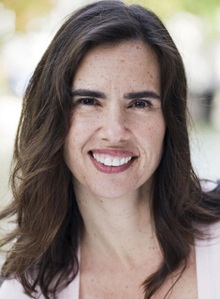
Kristin Neff, Ph.D.
Kristin Neff received her doctorate from the University of California at Berkeley, studying moral development. She did two years of postdoctoral study at the University of Denver studying self-concept development. She is currently an Associate Professor of Educational Psychology at the University of Texas at Austin.
During Kristin’s last year of graduate school she became interested in Buddhism and has been practicing meditation in the Insight Meditation tradition ever since. While doing her post-doctoral work she decided to conduct research on self-compassion – a central construct in Buddhist psychology and one that had not yet been examined empirically. Kristin is a pioneer in the field of self-compassion research, creating a scale to measure the construct over fifteen years ago. In addition to writing numerous academic articles and book chapters on the topic, she is author of the book Self-Compassion: The Proven Power of Being Kind to Yourself, released by William Morrow.
In conjunction with her colleague Dr. Chris Germer, she has developed an empirically supported training program called Mindful Self-Compassion, which is taught by thousands of teachers worldwide. They co-authored The Mindful Self-Compassion Workbook as well as Teaching the Mindful Self-Compassion Program: A Guide for Professionals, both published by Guilford. She is also co-founder and board president of the nonprofit Center for Mindful Self-Compassion. [self-compassion.org]
Twitter: @self_compassion
Facebook: Self-Compassion by Kristin Neff, Ph.D.


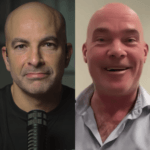
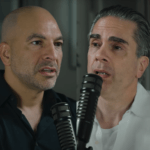
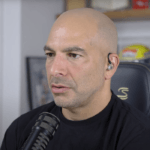
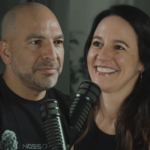
Very inspiring talk.
I like and follow all your podcasts! Peter, please, continue with your work. Thanks!